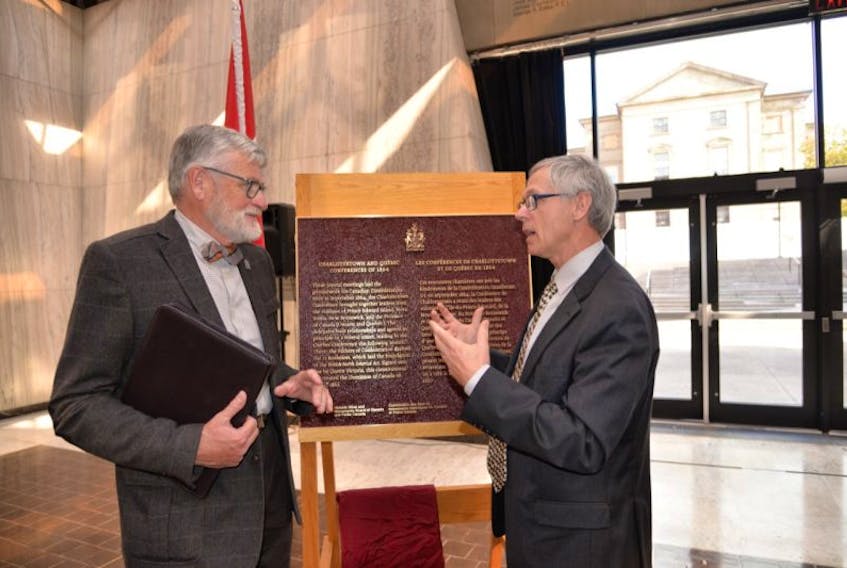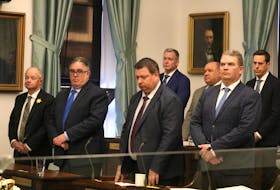“These two meetings gave the form and shape to the idea of Canada,” said Harry Holman, the master of ceremony at an unveiling of a plaque at the Confederation Centre of the Arts to commemorate the conferences.
The plaque will be installed on the grounds of Province House at a later date.
The meetings in Charlottetown that began on Sept. 1, 1864, involved representatives of the colonies of the Province of Canada (Ontario and Quebec), New Brunswick, Nova Scotia and Prince Edward Island. The meetings took place at Colonial Building (now Province House) to discuss the terms of a federal union of the colonies.
On Oct. 10 of that year, a second round of meetings began in Quebec. The outcome was 72 resolutions (that were later refined at the London Conference of 1866) that provided the foundation for the British North American Act of 1867 and the formation of Canada between Nova Scotia, New Brunswick, Ontario and Quebec on July 1, 1867.
“The result of the (Charlottetown) conference was agreement in principle to a confederation if satisfactory terms could be worked out. The terms were worked out in detail at Quebec,” explained Ed MacDonald, a history professor at UPEI.
“It was when you started translating the proposal of marriage to the contract, that people started to find fault and disagree. Because the general concept of the country met with agreement, but the details of the taxation powers, the powers of the government – what each of the provinces was going to gain and give up – that’s where there were problems.”
Prince Edward Island joined confederation in 1873.
Other speakers at the unveiling included Don MacKenzie, executive director of the Mi’kmaq Confederacy of Prince Edward Island; Sean Casey, member of Parliament for Charlottetown; Karen Jans, superintendent with Parks Canada on P.E.I.; and Jessie Inman, CEO of the Confederation Centre of the Arts.
For Holman, who is also the P.E.I. representative for the Historic Sites and Monuments Board of Canada, and MacDonald, the ceremony was an opportunity to reminisce about their friend and former teacher Father Francis Bolger, a P.E.I. historian, who recently passed away at age 92.
“This was near and dear to his heart,” said Holman. “He literally wrote the book, titled Prince Edward Island and Confederation. And, that was the first really in-depth treatment of Prince Edward Island’s role in the formation of Canada. A very important book.”









